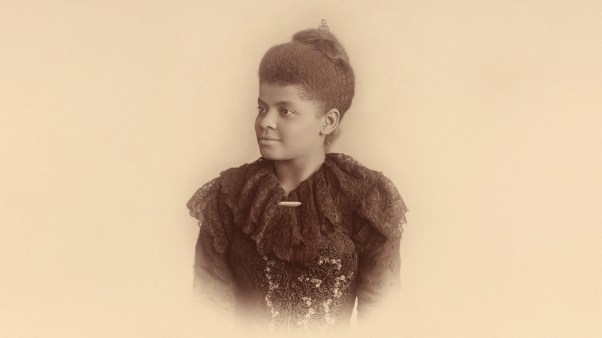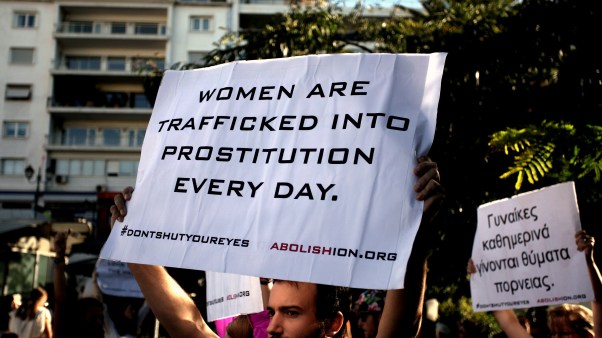“I have never wished a man dead, but I have read some obituaries with great pleasure.” I will confess that this witticism, attributed to Mark Twain, was the one to which I nodded a “yes” last night as I scrolled through my Twitter feed upon discovering that Osama bin Laden had been killed by U.S. Navy Seals in his compound in Abbottabad, Pakistan.
Moments later this reminder followed on Twitter, from someone quoting Proverbs 24:17, giving me pause: “Do not rejoice when your enemy falls, and let not your heart be glad when he stumbles” (ESV).
I have no doubt that in this military killing the United States’ government exercised its divinely ordained task, wielding the sword to administer justice and constrain evil. I believe this to be so largely because I am one of those Christians for whom the question of the proper task and character of government cannot be answered without reference to Romans 13: “Rulers are not a terror to good conduct, but to bad. … [The ruler] is God’s servant for your good . … [H]e does not bear the sword in vain. For he is the servant of God, an avenger who carries out God’s wrath on the wrongdoer.”
Because of this conviction, I resonate with the statements by President Obama, Secretary of State Clinton, former President Bush, and former New York Mayor Giuliani, when they say that in this killing, “justice has been done.” It will be important in the days (and years) ahead to learn more about the prudential judgments that informed this military action. What were the immediate intentions with the action: to capture or assassinate? What are the military purposes that this action will advance? Beyond just retribution, what are the proper political purposes that this action will serve? But as to the fundamental justice of the action, I suffer from no ambivalence.
The question that does trouble me is how we as Christians should respond to the news of this death, especially those of us who are citizens or friends of the United States of America.
The immediate response to the news was rejoicing in the streets. Online, some of my friends and acquaintances expressed sentiments of the “O-B-L, roast in hell” variety. And I understand this response, and have at many times in my life felt similar sentiments when faced with the perpetrators of intentional grievous harm to others. The Christian Scriptures themselves show, in particular in imprecatory prayers like Psalm 137, that the people of God often feel a desire for vengeance, and take a sometimes shockingly expressed delight in the prospect or realization of punishment for enemies and evildoers:
Remember, O Lord, against the Edomites
the day of Jerusalem,
how they said, “Lay it bare, lay it bare,
down to its foundations!”
O daughter of Babylon, doomed to be destroyed,
blessed shall he be who repays you
with what you have done to us!
Blessed shall he be who takes your little ones
and dashes them against the rock!
But beyond this immediate response, understandable as it is, I believe it is necessary for Christians to pause, and to consider the death of Osama bin Laden within the deeper perspective of human sin and divine grace. In the end, no death should give us pleasure. Another Scripture passage coming across the Twitter transom has been Ezekiel 18:23: “Have I any pleasure in the death of the wicked, declares the Lord God, and not rather that he should turn from his way and live?”
Whenever I take delight in the punishment of an evildoer, I am reminded of the words attributed to the 16th-century English Protestant and martyr John Bradford, who said from his imprisonment in the Tower of London, watching a criminal being led to execution, “There, but for the grace of God, goes John Bradford.” And then I am reminded of a prayer attributed to Tim Keller, who has been a help to all of us as we tried to make sense of the events of 9/11:
Lord Jesus Christ, I admit that I am weaker and more sinful than I ever before believed, but, through you, I am more loved and accepted than I ever dared hope. I thank you for paying my debt, bearing my punishment and offering forgiveness. I turn from my sin and receive you as Savior.
Rejoicing in the death of another, however wicked, involves forgetting the depths of our own depravity and the astonishing reality of our own salvation.
Our best next response, I believe, to the news of Osama bin Laden’s death, after we have sought our own hearts for the wickedness that resides in all of us, and have thanked God for his amazing grace that has rescued us from our own evil, is to join President Obama on May 5, this year’s National Day of Prayer, “in giving thanks for the many blessings we enjoy” and “in asking God for guidance, mercy, and protection for our nation.” And perhaps we can add a prayer for our enemies, that God may win them to himself and in his own good time bring into the relations between this nation and those who now seek her destruction some foretaste of the just peace of his world to come.
And as we gain some distance from the events of yesterday, we do need to continue in serious conversation, with one another as believers and with our fellow citizens and friends, about war and justice, about life and death, about retribution and peace. Not everyone who reads what I write here will agree with me that the actions of the American government in the killing of Osama bin Laden were just. Neither will everyone agree with me that rejoicing over that death, understandable as it is, is inappropriate for those of us who know the depth of our own sinfulness and the scope of God’s grace. But once again these events illustrate the tension in being both citizens of the United States of America (or any political community) and citizens of the kingdom of God.
Gideon Strauss is CEO of the Center for Public Justice and editor of Capital Commentary. “Speaking Out” is Christianity Today‘s guest opinion column and (unlike an editorial) does not necessarily represent the opinion of the publication.
Copyright © 2011 Christianity Today. Click for reprint information.
Related Elsewhere:
See also our roundups of early Twitter responses and what Bible verses became popular after the announcement of bin Laden’s death.








